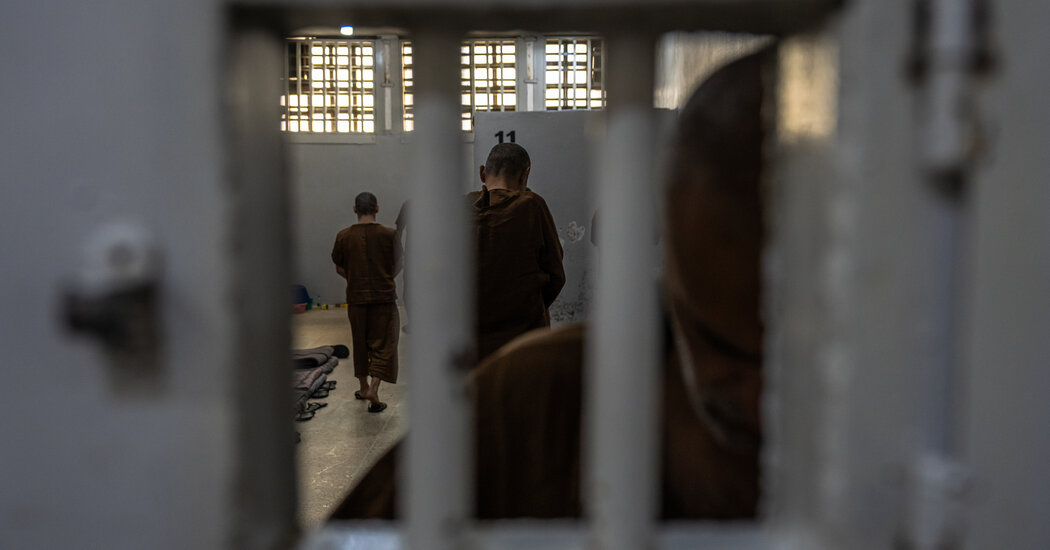The U.S. has sent more forces to Syria, tamping down on the immediate threat, but experts warn that the extremist group could break thousands of hardened fighters out of prison.
The U.S. has sent more forces to Syria, tamping down on the immediate threat, but experts warn that the extremist group could break thousands of hardened fighters out of prison.
Alissa J. Rubin and Eric Schmitt
Alissa J. Rubin reported from Baghdad and Hasaka, Syria, and Eric Schmitt from Washington
The Islamic State has shown renewed vigor in Syria, attracting fighters and increasing attacks, according to the United Nations and U.S. officials, adding to the volatility of a country still reeling since the fall of President Bashar al-Assad.
The group is still nowhere near as strong as it was a decade ago, when it controlled eastern Syria and a large part of northern Iraq, but there is a risk, experts say, that the Islamic State can find a way to free thousands of its hardened fighters who are held in prisons guarded by U.S.-backed Syrian Kurdish forces.
A serious Islamic State resurgence would undermine a rare moment when Syria seems to have a chance to move beyond a brutal dictatorship. But it could also reverberate more broadly, spreading instability through the Middle East. The extremist group once used Syria as a base to plan attacks on the country’s neighbors and further abroad in Europe.
Between 9,000 and 10,000 Islamic State fighters and about 40,000 of their family members are detained in northeastern Syria. Their escape would not only add to the group’s numbers, but also provide a propaganda coup.
“The crown jewel for the Islamic State is still the prisons and camps,” said Colin Clarke, the head of research for the Soufan Group, a global intelligence and security firm.
“That’s where the experienced, battle-hardened fighters are,” he said. “In addition to whatever muscle they add to the group, if those prisons are open, the pure propaganda value” would serve the group’s recruitment efforts for months.
We are having trouble retrieving the article content.
Please enable JavaScript in your browser settings.
Thank you for your patience while we verify access. If you are in Reader mode please exit and your Times account, or for all of The Times.
Thank you for your patience while we verify access.
Want all of The Times? .
Source: www.nytimes.com
